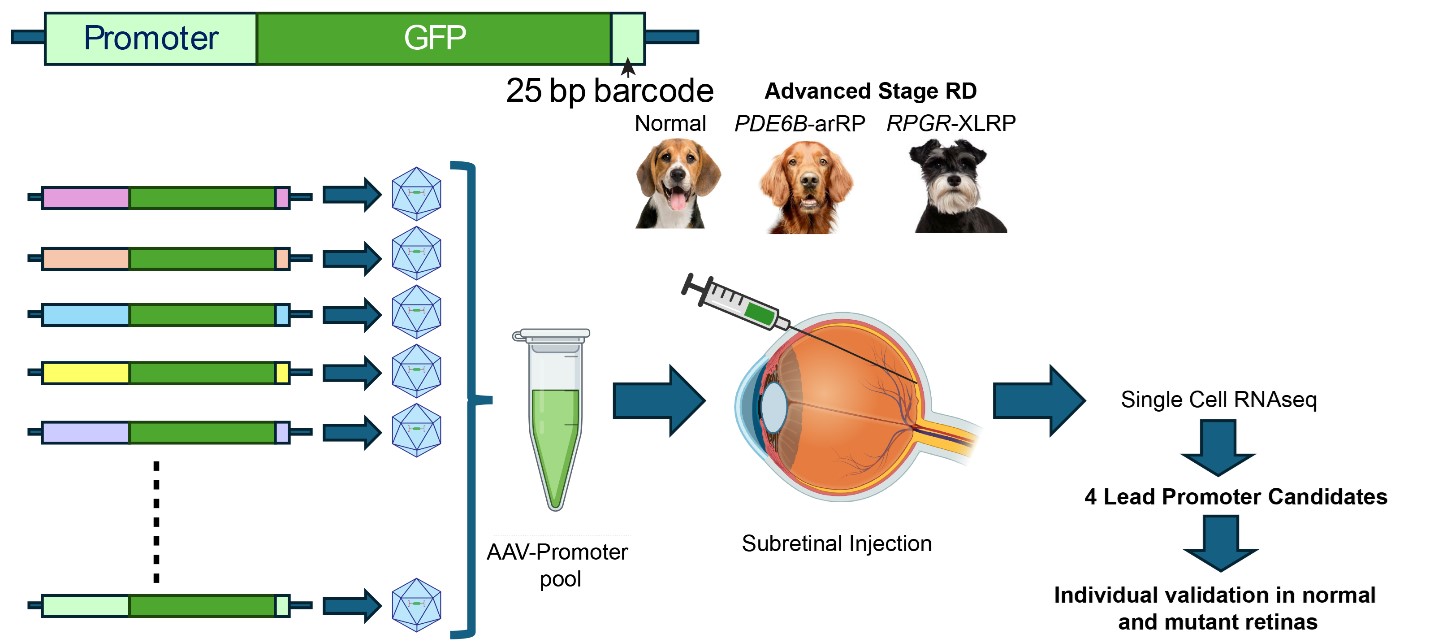Discovery and use of retina-specific promoters to rescue photoreceptor function specifically at clinically relevant, advanced stages of disease.
Problem:
Despite the fact that retinal gene therapy studies have shown promising results in animal models, treatment of advanced retinal degeneration with currently available gene therapies have not been successful. Because patients are usually diagnosed with progressive retinal degeneration at advanced stages of disease, structural and cellular remodeling of the retina found at later stages of disease affect the ability for genetic therapies to promote regeneration and rescue of the photoreceptors in the retina.
Solution:
The authors have identified retina-specific promoters that drive gene expression in advanced stages of retinal degeneration. These promoters can upregulate specific genes in degenerated retinae with low viral titers, high efficacy, and higher cell-specificity than the current standard of care treatments.
Technology:
The authors mined through transcriptomic data for genes whose expression is upregulated or remain unchanged in retinal degeneration. Genes that were specifically expressed in rods and cones were further isolated and assessed for their expression levels in diseased retinae. Upon subretinal injection of several genetic promoters in canine retinae, the authors identified four photoreceptor-specific promoters that drive gene expression in advanced retinal disease better than the currently used promoters in retinal gene therapy. These promoters may be used to improve current treatments and to produce the next generation of retinal gene therapies.
Advantages:
- Higher cell specificity and effectiveness of transgene expression in degenerated retinae than the current standard of care
- Requires lower viral titers (therapeutic dose) for the expression of target genes in degenerated retinae
- Effective during later stages of retinal degeneration disease

Experimental design to test promoter expression in advanced-stage canine retinal degeneration models. Canine and human promoters were screened in canine retinas using a parallel reporter assay. Promoters cloned with GFP reporters were packaged in AAV5 vectors and pooled for subretinal injection. Six weeks post-injection, retinal punches were analyzed with single-cell RNA sequencing to assess gene expression. Four lead promoter candidates were tested individually in both normal and in diseased retinas at advanced and late stages of degeneration to validate their activity.
Stage of Development:
- Target Identified
- Preclinical Discovery
Case ID:
24-10755-TpNCS
Web Published:
1/24/2025
Patent Information:
| App Type |
Country |
Serial No. |
Patent No. |
File Date |
Issued Date |
Expire Date |